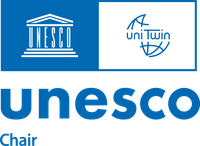Project Investigator: Ms. Sarah Eissler
The diffusion of innovations framework explains how innovations - ideas, behavior,
practice, or technology perceived by the target audience as new - are spread and adopted within a population. Serving as the basis for agricultural extension services since its conception in the 1960's, this theory has received criticism for its application in an international development context. By its nature, the framework drives focus and resource allocation to larger and "innovator" farmers, and therefore, away from smallholders, who are classified as the late adopter or laggard groups. It overlooks smallholder farmers yet they produce over 80% of the
world's agricultural supply.
Extension, research and development interest need to better understand the process behind why and how smallholder farmers do or do not adopt an innovation, as this is where the highest impact can be made. Improving smallholders' livelihoods improve rural areas and returns capacity to rural peoples and ways of life. With a better understanding of smallholder decision-making emerges efforts that are more efficiently and effectively tailored to diffuse innovative technology and practices to smallholders that can improve production, yield, quality, health, and others.
This thesis investigates smallholder coffee farmers' decision-making process when
choosing to adopt an innovation. Smallholder coffee farmers are interviewed via semi-structured, open ended key informant interviews throughout the Turrialba coffee-growing region in Turrialba, Costa Rica, following a phenomenological research approach. Five key concepts relating to the diffusion of innovations theory were investigated. Themes emerged across the five key concept areas relating to how smallholders were influenced to make their decisions. The conclusions and recommendations drawn are specific to the participants in the Turrialba region.
PDF document, 3.3 MB
This research ultimately sought to understand from a smallholder coffee farmer’s perspective the influential factors leading to the decision to adopt an innovation on his or her farm. It reflects the results of key informant and expert interviews, secondary data and observational fieldwork gathered to understand Costa Rican smallholder coffee producers behaviors, perceptions, knowledge and factors influencing their decision to adopt innovations on their farm. Decision-making is a dynamic and complex process that is ultimately best explained through the individual’s descriptive experiences. Chapter five presents the conclusions, implications and recommendations for the five different research questions from the collected data presented in chapter four.




